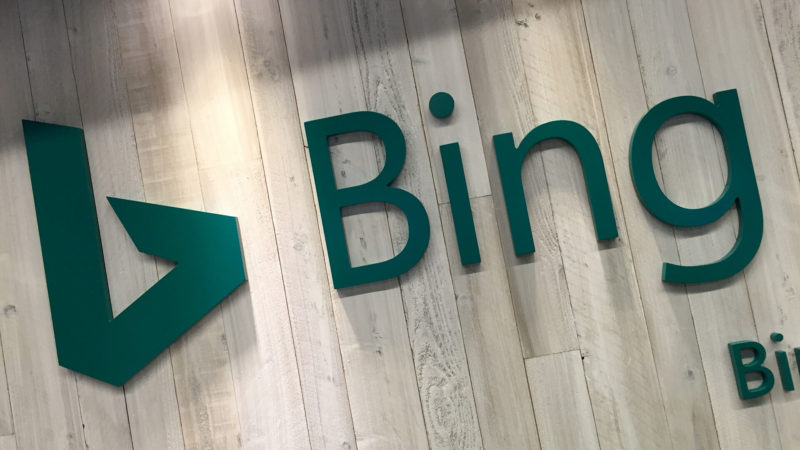Bing Ads has a conversion tracking fix for Apple’s Intelligent Tracking Prevention
Advertisers must enable auto-tagging of the Microsoft Click ID in their accounts to get consistent ad conversion tracking from Safari.
In September, Google announced its solution to maintain campaign tracking from Safari, with a new Google Analytics cookie. Now Bing is introducing its method for addressing the challenge of tracking ad clicks from Safari posed by Apple’s Intelligent Tracking Prevention (ITP).
Some advertisers may have noticed an alert in their Bing Ads accounts to enable auto-tagging of Click ID “for accurate conversion tracking”. You guessed it, this has to do with Bing Ads’ solution to ITP tracking issues. Checking the box will automatically tag destination URLs with the Microsoft Click ID. It can be set at the account level under URL options in the Shared Library as shown in the screenshot below.
Some advertisers will already have the Microsoft Click ID auto-tagging enabled. Its what underpins Bing Ads’ offline conversion imports, for example.
First, a quick overview of ITP, and then we’ll get into how Bing Ads’ solution actually works.
What is Intelligent Tracking Prevention?
With ITP, third-party cookies deemed able to track users across sites can only be used in a third-party context for 24 hours from the time a user visits a website via Safari. After 24 hours, those cookies can only be used for supporting user log-ins. After 30 days, the cookies are purged entirely.
For marketers, that means that unless a user converts within 24 hours of visiting an advertiser’s site after clicking an ad, for example, third-party cookies are purged and conversion tracking is lost. As a result, with Safari accounting for nearly 50 percent of mobile web traffic share in North America by some measures, ITP has the potential to make a mess of mobile ad conversion attribution.
The fix: Microsoft Click ID and Universal Event Tracking
Bing Ads uses the Universal Event Tracking (UET) tag to power conversion tracking. The tag, when placed on advertiser sites, captures what users do once they click through from an ad, including conversion actions they take.
Like Google, Bing is responding to ITP with a method that is in line with Apple’s guidance around ad attribution, which states, “We recommend server-side storage for attribution of ad impressions on your website. Link decoration [ e.g., padding links with information] can be used to pass on attribution information in navigations.”
Note: only the JavaScript version of the UET tags supports the ability to set these cookies. If you’re using the non-JS version, you might consider switching.
When advertisers enable auto-tagging for the Microsoft Click ID, or MSCLIKID, the following process occurs:
- Bing Ads will automatically add a unique click ID to the landing page URL after a user clicks on an ad.
- The UET tag will set a first-party cookie called _uetmsclkid on the advertiser’s site to capture the Microsoft Click ID from the URL. (Without auto-tagging enabled, the Microsoft cookie is set on Bing.com as a third-party.)
- The UET tag also sets a first-party session ID cookie on the advertiser’s domain to help improve the accuracy of the conversion tracking. (This already happens by default and isn’t related to the auto-tagging.)
- Bing Ads can then tie any conversion event back to the search ad clicks that assisted in the conversion via the click ID, until the _uetmsclkid expires after 90 days.
This applies for conversions happening outside of the 24 hour window after a user visits the advertiser’s site. If a conversion happens within the 24 hours, the Microsoft cookie will still be present, and Bing Ads will use the IDs in that cookie for attribution as it does currently.
Without auto-tagging enabled, the _uetmsclkid first party cookie won’t be set and Safari/ITP will likely purge the third-party UET/Microsoft cookie after the 24 hour window.
The solution is already working for advertisers that enabled auto-tagging for other purposes. For everyone else, it will start working as soon as it’s enabled at the account level as shown above.It will also be selected by default when creating new conversion goals.
As with Google’s solution, this fix only addresses tracking for attribution, it does not address how retargeting works (or doesn’t after 24 hours) on Safari. Bing Ads says is working on a solution for that.
Contributing authors are invited to create content for Search Engine Land and are chosen for their expertise and contribution to the search community. Our contributors work under the oversight of the editorial staff and contributions are checked for quality and relevance to our readers. Search Engine Land is owned by Semrush. Contributor was not asked to make any direct or indirect mentions of Semrush. The opinions they express are their own.




